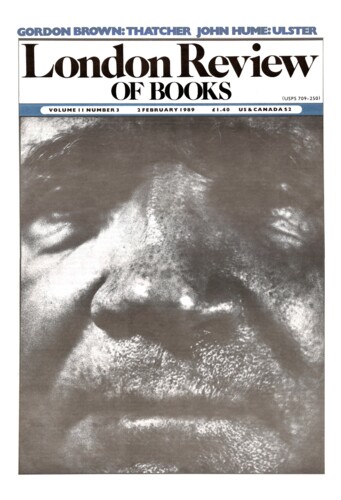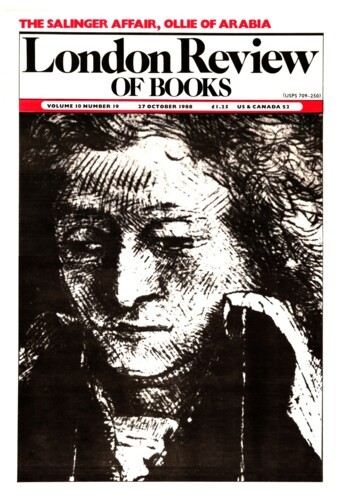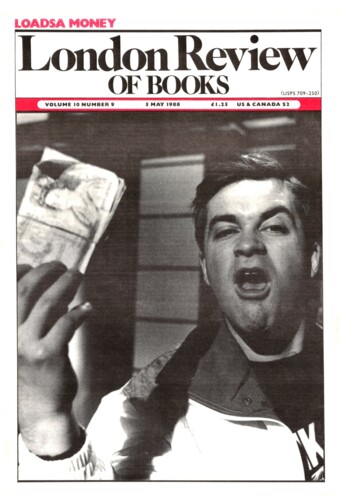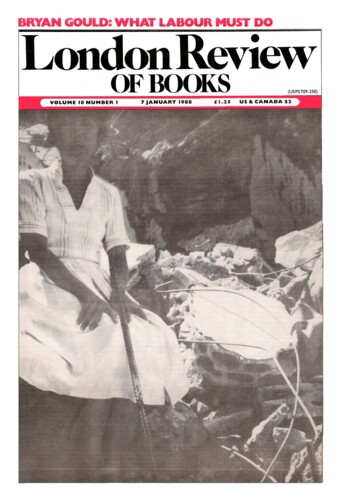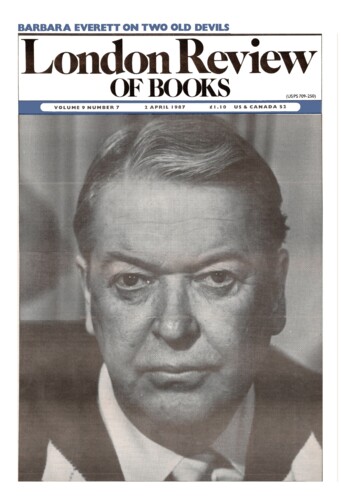Danger-Men
Tom Shippey, 2 February 1989
Christopher Hill has shown literary critics the way before now. Many must have felt at least mildly chastened by his remarks in Milton and the English Revolution (1977), no less forceful for their studied moderation, on remembering the effects on Paradise Lost of censorship, fear, a social context in which men were hanged for expressing Miltonic opinions and judges expressed regret at not being able to order sentences of death by burning. Now Hill on Bunyan promises to carry out a similar work of rescue from those who would see the tinker-author as representing only ‘a timeless human condition’, as reaching no more than the status of ‘a great literary classic’. It is more truthful, more lively, and more interesting, Hill claims, to put Bunyan back into his ‘revolutionary age’, to see his books at once as products of local history, inhabited by real and substantially-documented men and women, and as reactions to national and social crisis with which even pampered armchair-reader moderns can uneasily identify.
